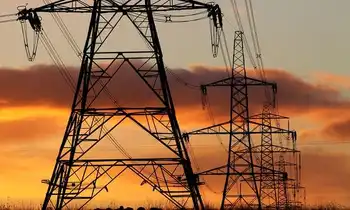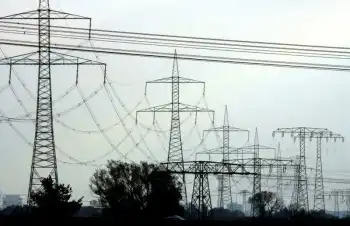CALGARY — - Ontario urged to reassess plans to close coal plants
CALGARY — Ontario should reconsider plans to shut down coal-fired electricity plants, the co-chair of a committee studying long-term electricity supply in the province said recently.
Peter Budd, who was appointed to Ontario's task force on electricity conservation and supply by the former Conservative government of Ernie Eves, told a conference on electricity restructuring that replacing five coal-burning plants would be difficult.
"It's clear that coal is an important part of the supply mix today, and if we're going to exit the current use of coal that we're employing right now, we're going to have to find a proper replacement," he said.
Budd, who is also chairman of the Ontario Energy Association, said advances in clean-burning technology, together with "hundreds of years" of supply, make coal a logical choice.
"It's true to say that if you don't clean up coal, you're going to contribute to health problems," he said.
"But I've also heard lots of evidence that you can clean coal up, that there's a lot of good clean-coal technology on the market . . . so maybe it's not such a large problem, and that's something that I think the government needs to look very closely at."
Ontario's new Liberal government, sworn into office last week, has promised to shut down Ontario's coal-burning power plants by 2007 and replace them with cleaner sources of energy such as natural gas, hydro, wind and landfill methane.
But Budd joins a chorus of concern over the cost.
Dominion Bond Rating Service has estimated Ontario electricity consumers will have to pay between $900 million and $1.2 billion more a year if the government goes through with its coal-replacement plan.
Natural gas supply is waning across North America, Budd noted.
"I'm also learning that gas is an incredibly valuable resource, and it should be used sparingly and it should be used carefully."
Peter Ostergaard, assistant deputy minister at British Columbia's Energy Ministry, said B.C. also needs to consider coal-fired power plants as electricity from hydro power has ebbed in recent years due to low water levels.
"We've focused very much in terms of British Columbia's coal policy to the export metallurgical market, and it's time to look to see if there are things we can do closer to home that adds some value and creates some jobs," said Ostergaard.
"We need to develop new generation to avoid exposure to the price volatility we've seen in the western power markets."
Related News

7 steps to make electricity systems more resilient to climate risks
LONDON - Summer is just half done in the northern hemisphere and yet we are already seeing electricity systems around the world struggling to cope with the severe strain of heatwaves and low rainfall.
These challenges highlight the urgent need for strong and well-planned policies and investments to improve the security of our electricity systems, which supply power to homes, offices, factories, hospitals, schools and other fundamental parts of our economies and societies. This means making our electricity systems more resilient to the effects of global warming – and more efficient and flexible as they incorporate rising levels of solar and…




